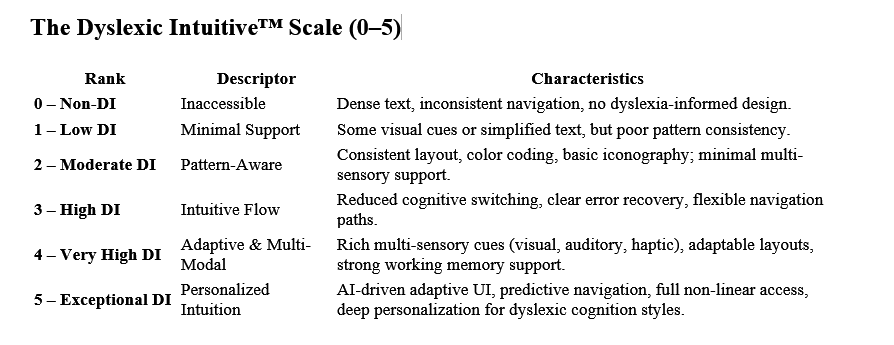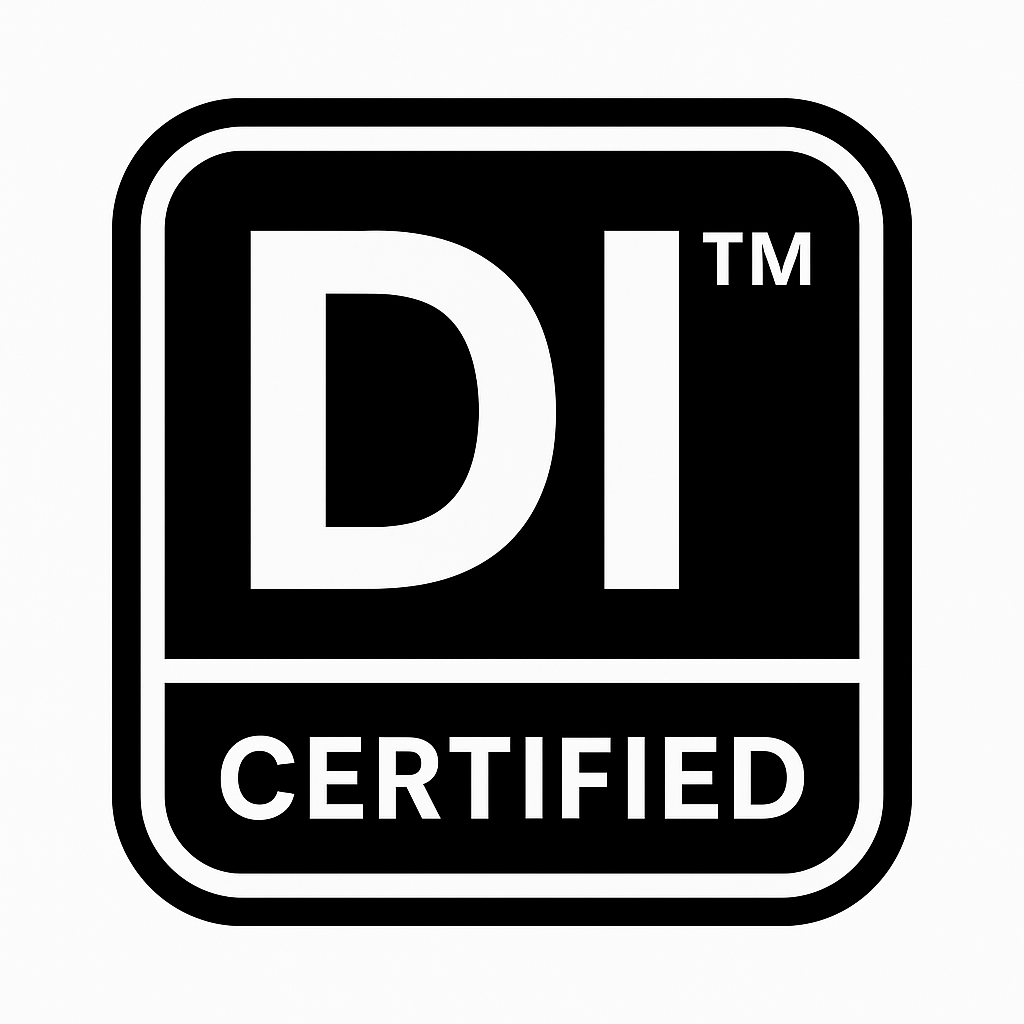Dyslexic Intuitive™ Standard
A ranked usability standard that helps developers design—and users identify—software that feels natural for dyslexic cognition, reducing cognitive load and building confidence.
I use countless tools in my personal and professional life — from note-taking apps to project planners. When a tool feels intuitive, my confidence in using it goes up instantly. That experience led me to realize: apps need a way to show how easy they are for dyslexic users and others with similar cognitive profiles to understand before committing. The Dyslexic Intuitive™ Standard gives: 1) a quick way to assess usability before full adoption; 2) a framework for structured conversations about design; and 3) a reminder to developers that intuitive front ends reduce support needs. Dyslexia is a spectrum with overlapping traits across neurological conditions. It's about more than reading — it's about processing, navigation, and confidence. Apps that recognize and design for this will not just gain users — they'll earn loyalty.
What is Dyslexic Intuitive™?
Dyslexic Intuitive (DI) is a ranked measure of how seamlessly a software application can be understood, navigated, and used by individuals with dyslexic cognitive profiles. A high DI score means the tool minimizes cognitive friction, leverages pattern recognition, and provides multi-sensory cues to build confidence without overloading working memory.
The 7 DI Criteria
Pattern Consistency
UI elements behave predictably throughout the application
Cognitive Load
Minimizes working memory demands during tasks
Multi-Sensory
Supports multiple input/output modalities
Error Recovery
Clear paths to correct mistakes without penalty
Navigation
Intuitive wayfinding with spatial consistency
Customization
Adaptable to individual preferences
Feedback
Clear, immediate responses to user actions
The DI Scale (0–5)

DI Rating Examples
How the Score is Calculated
Each of the seven criteria is rated on a 0–10 scale during an audit, then averaged and mapped to the 0–5 DI rank. The process is fast, repeatable, and transparent. A public checklist enables a full evaluation in under 10 minutes.

Scoring Process
Quick 2-minute scan to identify obvious DI strengths/weaknesses
Complete 3-5 common tasks while scoring each criterion
Average scores across criteria and map to 0-5 DI scale
Visualize strengths and opportunities for improvement
Certification

Dyslexic Intuitive™ Certified
This badge signifies evaluation against the Dyslexic Intuitive™ Standard and meeting criteria for inclusive, pattern-based, and cognitively accessible design. A DI-certified score reflects minimized cognitive load, consistent visual structure, multi-sensory support, and adaptive navigation — ensuring an interface that feels natural for dyslexic users and beneficial for all.
Learn About CertificationCertification Benefits
Stand out as an inclusive product in competitive markets
Build confidence with dyslexic users before they download
Clear targets for improving cognitive accessibility
Contribute & Next Steps
- Developers: Test your app against the DI checklist and publish a radar chart.
- Dyslexic users: Submit apps that feel intuitive — or exhausting.
- Organizations: Include DI scoring in procurement and vendor reviews.
- Researchers: Help validate and refine the DI criteria through studies.
- Educators: Teach DI principles in design and development courses.
Ready to Get Started?
Download the DI Audit Checklist to evaluate your favorite apps or your own software projects.
Download Checklist v1.0DI Audit Checklist v1.0 — coming soon.
